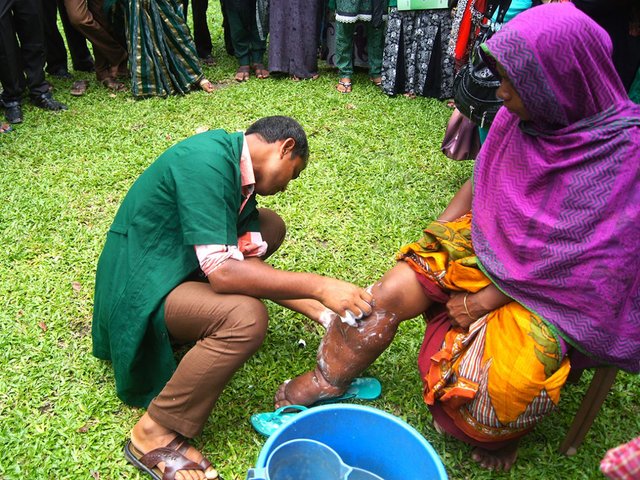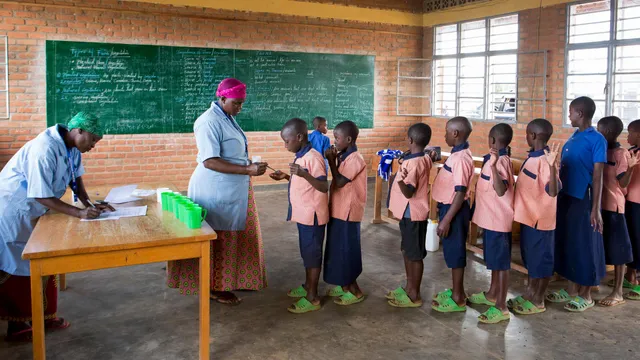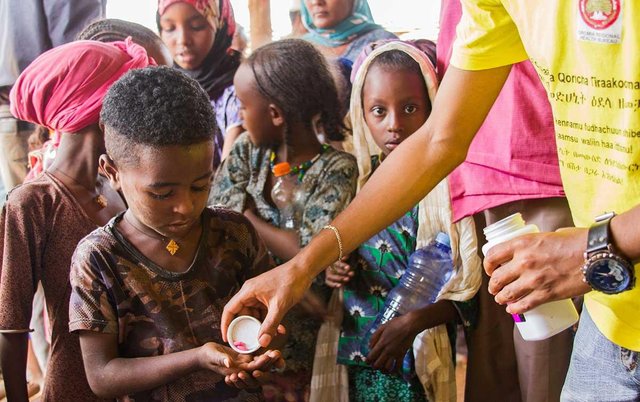Africa's Major Problems Series- No. 1 Neglected Tropical Diseases

Neglected tropical diseases are viral, parasitical, and bacterial diseases that mainly affect the world’s poorest people example leprosy, ascariasis, schistosomiasis, trachoma, filariasis among many others. These diseases persist under conditions of poverty and are concentrated in the developing world. On 1st January, 2016, the United Nation adopted the 17 Sustainable Development Goals of the 2030 Agenda for sustainable development. Among these goals was “Good health and wellbeing” at number 3 with the objective to end epidemics of neglected tropical diseases (NTDs), aids, tuberculosis, and malaria. In recent discussions on how to end these NTDs, a great challenge faced has been on how people (mostly rural dwellers) still disregard NTDs despite its negative effects. By the start of the post-colonial era to date, the world has observed a tremendous increase in the number of recorded cases of NTDs attributable to unsafe water, poor housing condition, and poor sanitation. Children are the most vulnerable to these diseases, which kill, impair, or permanently disable millions of people every year, often resulting in life-long physical pain. These diseases are a great threat to humans and have caused great damages to individuals in the developing world. Damages caused by these diseases have been observed in the educational sector, agricultural sector, and number of death rate. In the ensuing paragraph, we will be discussing on the effects of NTDs, why we should care about NTDs and why the global community need to take action to end NTDs.
Conventional wisdom has it that, students should have access to adequate education in order to prepare them for a better future. Contemporary scientific breakthrough in the domain of adequate education shows education has a positive effect on the cognitive development of children. In most rural areas in Cameroon, when a student contract leprosy, he/she is sent away from school and automatically excluded from any social activities. During this period, the student goes through one of the worst experiences in his/her life due to how the society treats or looks at him/her. I remember watching the frustration a junior student during my primary school days experienced. He was diagnosed with the leprosy disease and was sent back home. Along the line, he was discouraged and finally dropped out of school till date. This situation among many others is very common in most rural communities in Cameroon, hence, depriving students from adequate education.

Also, most individual’s main source of income in most rural communities in Cameroon is gotten from agricultural activities but unfortunately, we do not practice the mechanized system of farming. The youths in these regions makes up the workforce. Recently, due to the increasing number of infected people with NTDs in these regions which has permanently disabled many, most youths of the productive age have fled to the city leaving the elderly people back in the village. Thus, agricultural productivity rate keep decreasing every year and many farms have been left void for years without cultivation.
Similarly, in the Bakwerie tribe of Cameroon, when a woman’s husband dies due to an unknown reason, all fingers will be pointed at the wife and because of this, rituals will be performed for her to prove her innocence. Firstly, all hairy regions of her body are shaved, and she is locked up in her house during the week following her husband’s death. During this period, she sits naked on plantain leaves in the warmth of her fireside. She is not allowed to eat or make any form of contact with a human. At the end of the week, she parades the streets during which incantations are made. The most annoying part of all this practice is that these people always neglect the fact that the cause of the man’s death may be due to NTDs which is very rampant in that region, rather than pointing fingers at the wife and labeling her a witch. From the thick description of this ritual, it is hard to understand why fundamental activities like shaving and eating are considered as cultural categories.

Moreover, common sense seems to dictate that our constant interaction with people from other communities (regions, villages, and nations) helps to promote diversity and build up our beliefs. According to Quine, our personal beliefs are interwoven like a spider’s web with our strongest beliefs at the core of the web and he described them as core beliefs. These core beliefs are generally formed by our constant interaction in the society Sadly, NTDs have set in to restrict these interactions and inter marriages between individuals from one community with those from a different community just because one set view others as carriers of certain types of NTDs and they do not want to have anything to do with them. This act hinders diversity and promotes social identity clashes.
As a result of the above mentioned negative effects caused by NTDs, the global community needs to take urgent action towards ending NTDs because these effects keeps worsening as days goes by and if proper care is not taken, the value of education will be lost and most communities will experience a tremendous decrease in agricultural productivity rate and an increase in death rate in the coming years.